Politics
UK politics: Tom Tugendhat suggests Chagos Islands deal could lead to China establishing base there – as it happened | Politics

Tom Tugendhat suggests Mauritius deal could open door to China getting base on Chagos Islands
Tom Tugendhat, the former security minister and Tory leadership candidate, has suggested that China could end up establishing a military base on one of the Chagos Islands as a result of the UK’s decision to cede sovereignty.
Britain will still have delegated sovereignty over Diego Garcia, the only inhabited island in the archipelago and the site of UK/US airbase which is regarded as being of key strategic significance by London and Washington.
But, in an interview with the World at One, Tugendhat said that under the deal announced today Mauritius has not given assurances that it will not lease any of the other islands to another country. “Mauritius is free to rent them out to anybody else, including, for example, China,” he said.
Tugendhat, who chaired the Commons foreign affairs committee before he became a minister, said that he did not accept the government’s argument (see 1.40pm) had to surrender sovereignty because it was losing cases in international courts.
He cited Robert Buckland, the former justice secretary, as one of several lawyers who have said the International Court of Justice was wrong to rule against the UK on this (Buckland wrote about this here) and Tugendhat said the UK could have ignored the court’s advisory opinion anyway.
Tugendhat said he agreed the Chagossians had been treated shamefully. But he said they could have been allowed to return without sovereignty being transferred, and he claimed the Mauritian government was not interested in their plight until they took it up for political reasons in the 1990s.
And he was particularly critical of James Cleverly, his Tory leadership rival and a former foreign secretary, for starting negotiations on the transfer of sovereignty.
This is another area where, I’m afraid, we’re seeing legalism replacing leadership.
And we saw this legalism in the Foreign Office in November 2022 [when Cleverly was foreign secretary] when the Foreign Office was pushing for this and nobody stopped it until finally we got leadership under Lord Cameron [Cleverly’s successor as foreign secretary].
Asked to respond to Jonathan Powell’s claims that he was just engaged in posturing for Tory leadership contest purposes (see 1.40pm), Tugendhat said that Powell had been a Labour activist for many years and that his criticism of Tugendhat was “silly” because he (Tugendhat) had been opposing plans to transfer sovereignty of the islands for many years. It was an issue he took up as foreign affairs committee chair, he said.
Key events
The UK and Mauritius have agreed to engage in constructive negotiations, with a view to arriving at an agreement by early next year.
David Clark, a Labour former special adviser in the Foreign Office, accused Cleverly of blatant hypocrisy. Well this is disappointing. I thought Cleverly was a cut above the populist buffoons around him. Turns out he’s just as much of a hyperbolic truth-twister as the rest of them. The negotiations to hand over sovereignty of the Chagos Islands were initiated by him as a Minister. https://t.co/SL0KaOFZ5v
— David Clark (@David_K_Clark) October 3, 2024 Well this is disappointing. I thought Cleverly was a cut above the populist buffoons around him. Turns out he’s just as much of a hyperbolic truth-twister as the rest of them. The negotiations to hand over sovereignty of the Chagos Islands were initiated by him as a Minister.
Jeremy Corbyn, the former Labour leader who now sits in the Commons as an independent MP, has been campaigning on behalf of Chagossians for many years. He has welcomed today’s announcement as a “milestone for decolonisation”.
I pay tribute to Olivier Bancoult and Chagossian communities who have been disgracefully treated for so long.
Following decades of campaigning, this long overdue settlement at last includes the right to return. A milestone for decolonisation.https://t.co/rBUTIztpFd
— Jeremy Corbyn (@jeremycorbyn) October 3, 2024 Keir Starmer’s polling figures have not been great recently but, according to these YouGov figures, on at least one metric he is doing very well; some 79% of people approve of his decision to return donations worth £6,000.
Back to the homelessness figures (see 10.33am, 11.16am and 12pm), and Vicky Spratt, the housing journalist, has posed these on social media explaining what they mean. Bleak statistics today explain why temporary accommodation is probably the biggest immediate problem faced by Labour…
New govt figures show that the number of households facing homelessness has exceeded (320,000) between 2023-2024, the highest on record.
— Vicky Spratt (@Victoria_Spratt) October 3, 2024 Bleak statistics today explain why temporary accommodation is probably the biggest immediate problem faced by Labour…
New govt figures show that the number of households facing homelessness has exceeded (320,000) between 2023-2024, the highest on record. This is an 8% rise on 2022-2023 and means that the population of homeless people in England is now greater than the population of Nottingham (stat is from @crisis_uk).
The number of households forced to live in temporary accommodation remains at record levels with 117,450 households housed like this by their council. That’s a 12.3% rise on last year.
As of 31 March 2024, a fifth of all households with children in temporary accommodation (22.5%) had been there for 5 years or more.
There are now 151,630 children living in temporary accommodation, which is enough to fill 5,700 classrooms…just let that sink in…
Antony Blinken, the US secretary of state, has released a statement about the UK’s deal with Mauritius about the Chagos Islands. If anything, it is even more positive about it than President Biden’s. (See 2.03pm.) Here’s an extract.
The United States welcomes today’s historic agreement between the Republic of Mauritius and the United Kingdom on the status of the Chagos Archipelago. The United States has strongly supported negotiations between the two countries over the past two years and is pleased to see the successful outcome of this diplomatic effort.
Kemi Badenoch has joined the other three Tory leadership candidates (see 12.31pm) in claiming that the government’s decision to return the Chagos Islands to Mauritius creates a security risk.
Two days after Israel is attacked directly by Iran, Labour have put our vital base in the Indian ocean at risk.
Anyone who has been paying attention to the geopolitical climate will understand the strategic necessity of these islands. Labour has either not been paying attention… https://t.co/LjTrBujcCL — Kemi Badenoch (@KemiBadenoch) October 3, 2024 Two days after Israel is attacked directly by Iran, Labour have put our vital base in the Indian ocean at risk.
Anyone who has been paying attention to the geopolitical climate will understand the strategic necessity of these islands. Labour has either not been paying attention or don’t care.
Either way, this decision weakens UK influence across the world.
As mentioned already, the government says the deal will “protect our national security”. The US government takes the same view. (See 2.03pm.) Unusually, a Labour MP has criticised the Chagos Islands decision. But, unlike the opposition, Peter Lamb is not opposed to the return of sovereignty. He wanted Chagossians to be deciding their own future.
This is very disappointing. The decision over the future of the islands belongs the Chagossian people, it’s not for the UK to bargain away. 60 years on from their exile, they’ve been let down again.
UK will give sovereignty of Chagos Islands to Mauritius https://t.co/8SO4OBwSzn
— Peter Lamb MP 🌹 (@PeterKLamb) October 3, 2024 This is very disappointing. The decision over the future of the islands belongs the Chagossian people, it’s not for the UK to bargain away. 60 years on from their exile, they’ve been let down again.
Lamb is MP for Crawley, where he used to be council leader. The town is home to the largest community of Chagossians in the UK (around 3,500).
Back to the Boris Johnson book, and John Crace, the Guardian’s sketch writer, has also been taking a look at it.
Weirdly, Jennifer Arcuri does not feature in the index of Boris Johnson book
— John Crace (@JohnJCrace) October 3, 2024 Weirdly, Jennifer Arcuri does not feature in the index of Boris Johnson book
Turns out that his wedding to Carrie was one of the happiest days of Boris Johnson’s life. Mainly because he wasn’t paying for it
Owen Bowcott has written a good analysis of the Chagos Islands deal. He says Liz Truss was PM when the UK government started talks with Mauritius about transferring sovereignty. “She may have been keen on removing a diplomatic obstacle to post-Brexit British trading relations in Asia,” he says.
Here is the full article.
The risk to peace in Northern Ireland from Brexit was exaggerated and was used by opponents “to trap the UK in the EU”, Boris Johnson has claimed in his memoir, Peter Walker reports.
Suella Braverman, the former home secretary, has joined those Tories criticising the Chagos Islands deal. This is a shameful decision.
Starmer’s reckless capitulation over the Chagos Islands severely undermines UK national security.
We all knew Lammy was weak but now it’s official: he’s China’s useful idiot too.
A dark day for our country’s sovereignty. — Suella Braverman MP (@SuellaBraverman) October 3, 2024 This is a shameful decision.
Starmer’s reckless capitulation over the Chagos Islands severely undermines UK national security.
We all knew Lammy was weak but now it’s official: he’s China’s useful idiot too. A dark day for our country’s sovereignty.
Tom Tugendhat, the former security minister and Tory leadership candidate, has suggested that China could end up establishing a military base on one of the Chagos Islands as a result of the UK’s decision to cede sovereignty.
Britain will still have delegated sovereignty over Diego Garcia, the only inhabited island in the archipelago and the site of UK/US airbase which is regarded as being of key strategic significance by London and Washington.
But, in an interview with the World at One, Tugendhat said that under the deal announced today Mauritius has not given assurances that it will not lease any of the other islands to another country. “Mauritius is free to rent them out to anybody else, including, for example, China,” he said. Tugendhat, who chaired the Commons foreign affairs committee before he became a minister, said that he did not accept the government’s argument (see 1.40pm) had to surrender sovereignty because it was losing cases in international courts.
He cited Robert Buckland, the former justice secretary, as one of several lawyers who have said the International Court of Justice was wrong to rule against the UK on this (Buckland wrote about this here) and Tugendhat said the UK could have ignored the court’s advisory opinion anyway.
Tugendhat said he agreed the Chagossians had been treated shamefully. But he said they could have been allowed to return without sovereignty being transferred, and he claimed the Mauritian government was not interested in their plight until they took it up for political reasons in the 1990s.
And he was particularly critical of James Cleverly, his Tory leadership rival and a former foreign secretary, for starting negotiations on the transfer of sovereignty. This is another area where, I’m afraid, we’re seeing legalism replacing leadership.
And we saw this legalism in the Foreign Office in November 2022 [when Cleverly was foreign secretary] when the Foreign Office was pushing for this and nobody stopped it until finally we got leadership under Lord Cameron [Cleverly’s successor as foreign secretary].
Asked to respond to Jonathan Powell’s claims that he was just engaged in posturing for Tory leadership contest purposes (see 1.40pm), Tugendhat said that Powell had been a Labour activist for many years and that his criticism of Tugendhat was “silly” because he (Tugendhat) had been opposing plans to transfer sovereignty of the islands for many years. It was an issue he took up as foreign affairs committee chair, he said.
Nigel Farage also claimed the Chagos Islands deal would make Washington “furious”. (See 2.01pm.)
But President Biden has issued a statement welcoming the proposed treaty. In it is he said:
I applaud the historic agreement and conclusion of the negotiations between the Republic of Mauritius and the United Kingdom on the status of the Chagos Archipelago. It is a clear demonstration that through diplomacy and partnership, countries can overcome long-standing historical challenges to reach peaceful and mutually beneficial outcomes. This agreement affirms Mauritian sovereignty over the Chagos Archipelago, while granting the United Kingdom the authority to exercise the sovereign rights of Mauritius with respect to Diego Garcia.
Diego Garcia is the site of a joint U.S.-UK military facility that plays a vital role in national, regional, and global security. It enables the United States to support operations that demonstrate our shared commitment to regional stability, provide rapid response to crises, and counter some of the most challenging security threats we face. The agreement secures the effective operation of the joint facility on Diego Garcia into the next century.
Nigel Farage, the Reform UK leader, has also criticised the decision to return the Chagos Islands to Mauritius, calling it a “strategic disaster”. Giving up the Chagos Islands is a strategic disaster. Our American allies will be furious and Beijing delighted. Labour are making the world a more dangerous place.
— Nigel Farage MP (@Nigel_Farage) October 3, 2024 Giving up the Chagos Islands is a strategic disaster. Our American allies will be furious and Beijing delighted. Labour are making the world a more dangerous place.
In his interview on the World at One Jonathan Powell, the former Tony Blair aide who helped to negotiate the Chagos Islands/Mauritius deal as an envoy for Keir Starmer, said the Chagossians were treated “shamefully” when they removed from the islands in the 1960s. He said:
What we did in 60s, what Britain did, was wrong. We treated them shamefully.
And that’s why previous governments have given them British nationality, British citizenship, and so on.
So we setting up a fund that will be administered with the Mauritian government, because this is now Mauritian territory, so we can’t say who goes back.
Powell said that, under the deal, Chagossians will not be able to return to Diego Garcia, where Britain will retain delegated sovereignty for at least 99 years. (See 1.19pm.) But they would be able to return to other islands if they wanted, he said. Many of Chagossians are either Mauritian citizens or have the right to Mauritian citizenship.
Going back to the islands … it’s going to be difficult. They’re very remote and very hard to live on, and the life there before was very difficult.
But yes, we are committing ourselves to helping on visits, and we’re committing to a fund to help on resettlement, if that’s possible.
Jonathan Powell, who as Tony Blair’s chief of staff played a major role in negotiating the Good Friday agreement, had a key role in finalising the Chagos Islands’ deal. Only a month ago he was appointed by Keir Starmer to be his special envoy on the negotiations with Mauritius over the future of the islands.
In an interview with Radio 4’s the Word at One, Powell said that over the past month he had negotiated “intensively” and to get this agreement and that the deal was “genuinely historic”. He was also scathing about the comments from the three Tory leadership candidates on the deal. (See 12.31pm.) Asked for his reaction, he said:
I do think these comments from the Tory leadership candidates are a bit silly. James Cleverly was leading these negotiations not that many months ago with the Mauritian government [when he was foreign secretary].
The reason the British government started negotiating with the Mauritians was because of the law cases. We lost a law case at the ICJ [International Court of Justice], and then we lost another on in the Law of the Sea tribunal. Legal advice was clear that we were not going to be able to sustain that position. So that previous government started a negotiation.
What this government has done has been able to conclude it, because that government managed to lose the trust of the Mauritian government during the process.
So for the people who were involved in that negotiation to start criticising the outcome of something they couldn’t achieve is absolutely ludicrous. When it was put to Powell that the previous government did not want a deal like this, he did not accept that.
No, it’s not because of that. The negotiators who’ve been working on this are the same civil servants all the way through. It’s because they are criticising it because they want to try and score points in their desperate attempt to win the leadership.
Grant Shapps, the Tory former defence secretary, has also criticised the decision to give Mauritius sovereignty of the Chagos Islands. He posted this on social media.
This is absolutely appalling. Surrendering sovereignty here creates read across to other British bases. It’s a weak and deeply regrettable act from this government:
UK will give sovereignty of Chagos Islands to Mauritiushttps://t.co/quA4fNvzYt — Rt Hon Grant Shapps (@grantshapps) October 3, 2024 This is absolutely appalling. Surrendering sovereignty here creates read across to other British bases. It’s a weak and deeply regrettable act from this government:
British governments until now refused to give up sovereignty of the Chagos Islands because of the strategic importance of the Diego Garcia airbase, which is mostly used by the US. Under the agreement announced today, Britain will be able to exercise sovereignty rights over the base for at least 99 years. The joint statement from both governments says:
Both our countries are committed to the need, and will agree in the treaty, to ensure the long-term, secure and effective operation of the existing base on Diego Garcia which plays a vital role in regional and global security. For an initial period of 99 years, the United Kingdom will be authorised to exercise with respect to Diego Garcia the sovereign rights and authorities of Mauritius required to ensure the continued operation of the base well into the next century.
The Reform UK MP Rupert Lowe has also criticised the government’s decision to return the Chagos Islands to Mauritius, suggesting means Gibraltar’s future as a British overseas territory could be at risk. He posted these on social media.
The British Government is now actively undermining British interests overseas.
A total surrender. Speaking to contacts in Gibraltar, they are incredibly concerned following the Chagos Islands capitulation – ‘the thin end of the wedge’…
The message is loud and clear – this Labour Government is a disgrace.
Libby Brooks Russell Findlay taken part in first minister’s questions since he was elected as the new Scottish Conservative leader last Friday.
The baptism was barely fiery. With only a hint of nerves at the beginning of his questioning, the former investigative journalist had a decent first outing, interrogating John Swinney on the SNP government’s plans for a national care service, after revelations that more than £28m had been spent on the project – which would centralise adult social care and social work into a single service – just days after councils pulled their support.
Swinney responded that he supported the new service to deal with precisely the issues like delayed discharge that Findlay was setting out. He also lost no time in reminding the chamber that Findlay was a supporter of Liz Truss – no doubt a theme the SNP will return to frequently in coming months.
Findlay would be wise to spend his early days as leader repairing trust amongst his group of MSPs after a surprisingly bitter leadership campaign. But he must also take on the challenge posed by Reform UK after the party managed to secure 7% of the vote share across Scotland, despite having no infrastructure or leadership north of the border.
He also needs to navigate a change of emphasis as all candidates for the top job agreed it was time to stop relying on opposition to independence as their guiding principle.
Afternoon summary
Jeremy Corbyn welcomes Chagos Islands deal as ‘milestone for decolonisation’
Brexit opponents used IRA fears to ‘trap UK in EU’, Boris Johnson book claims
Tom Tugendhat suggests Mauritius deal could open door to China getting base on Chagos Islands
Biden welcomes UK’s ‘beneficial’ deal with Mauritius over Chagos Islands, saying it protects operation of Diego Garcia
Nigel Farage claims returning Chagos Islands to Mauritius ‘strategic disaster’
Britain treated Chagossians ‘shamefully’, says Jonathan Powell, who as Starmer’s envoy helped secure sovereignty deal
Envoy on Chagos Islands treaty says it is ‘ludicrous’ for Cleverly to criticise deal Tory government was also working towards
Russell Findlay taunted over his support for Liz Truss in his first FMQs as Scottish Tory leader

Politics
Reeves considers income tax threshold freeze
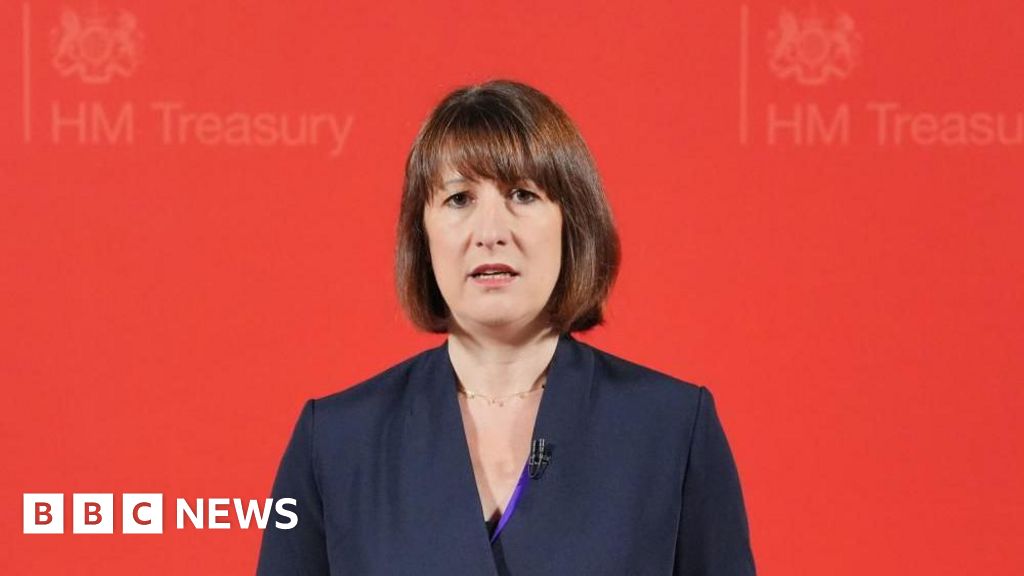
An announcement in the upcoming budget of a continued freeze on income tax thresholds beyond 2028 would not constitute a breach of Labour’s election manifesto promise, government sources have insisted.
In the run-up to June’s general election, both leader Sir Keir Starmer and the soon-to-be Chancellor Rachel Reeves pledged to “not increase taxes on working people”.
But a threshold freeze could allow the chancellor to raise an estimated £7bn by bringing more people into the tax system.
Reeves is currently trying to find £40bn through a mixture of savings and tax rises that she will announce in the new government’s first budget on Wednesday 30 October.
Tax thresholds were frozen by the previous Conservative government in 2022, but were due to rise again each year from 2028.
The chancellor is now said to be weighing a plan to extend the freeze for the remainder of the parliament.
The decision not to increase tax thresholds would continue a process called “fiscal drag”, in which more people are “dragged” into paying tax, or higher rates of tax, as their wages rise and cross the unchanging thresholds.
If Reeves goes ahead with the plan, roughly 400,000 more people will find themselves paying income tax at the basic rate.
Government insiders have insisted this does not breach Labour’s manifesto pledge to “not increase taxes on working people”.
Sources are pointing to the exact wording of the manifesto, which states that the “rates” of income tax would not rise.
In other words, in England, Wales and Northern Ireland these would remain – depending on income – at 20p, 40p and 45p.
But as people’s wages increased, so too would their tax bill.
In 2019, the Conservatives also pledged not to increase tax “rates” – and went on to freeze tax thresholds.
At the time, this was denounced by the Labour opposition as a “stealth tax”.
However, it is not one the party has specifically pledged to reverse.
Labour’s opponents will argue that an extension of a freeze would undermine the party’s wider-ranging promise not to increase taxes on working people.
Reeves has just 11 days to firm up her plans ahead of Budget day.
The country’s first female chancellor has warned of a £22bn “black hole” in the public finances – a gap caused by the rules the government has chosen to follow governing how much money it can borrow over the next five years.
Filling this hole would only be enough to “keep public services standing still”, the chancellor said this week.
This means she is hoping to find £40bn in order to avoid real-terms cuts to government departments.
Reeves has warned of “difficult decisions” ahead.
Politics
Senior Unite union official loses unfair dismissal claim

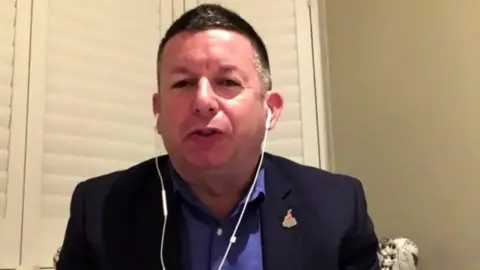 BBC
BBCA senior official at one of the UK’s largest trade unions has lost an unfair dismissal claim amid a police investigation into allegations of bribery, fraud and money-laundering at the organisation.
Howard Beckett was assistant general secretary at Unite the Union until his suspension in August 2022, four months after police raided the union’s London headquarters.
In his tribunal judgement, employment judge Richard Nicolle said police searches had also taken place at Mr Beckett’s “flat in London and home on the Wirral on 6 April 2022”.
Mr Beckett argued the claims against him were “baseless”.
His lawyer has told the BBC he is appealing the Employment Tribunal’s judgement, has launched legal action against the union and its general secretary for breach of privacy, and he noted the judge had been critical of Unite.
Mr Beckett was initially told his suspension was due to allegations of “misleading” the union’s ruling executive council in relation to the construction of its vastly over-budget hotel and conference centre in Birmingham.
The project was originally estimated to cost £7m but more than £100m was eventually spent.
An independent valuation later concluded the finished building was worth only £29m.
General secretary Sharon Graham commissioned an inquiry which, the tribunal said, led to the discovery of £14m which did not feature “in the final accounts and it remaining a mystery as to how and when this figure had been assessed and then presumably paid” to a contractor.
Mr Beckett was also told he had been suspended due to “concerns about the probity of awarding contracts for affiliated services”.
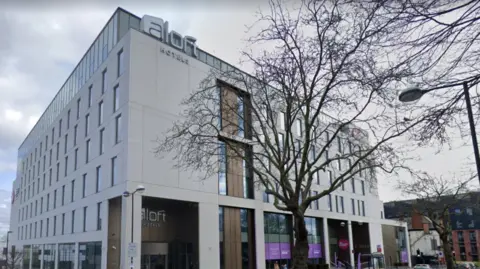 Google
GoogleA close ally of former Labour leader Jeremy Corbyn, Mr Beckett was off sick for almost 18 months before he resigned from Unite in January 2023.
His lawyer told the tribunal Mr Beckett had not been well enough to participate in a disciplinary hearing and the union’s disciplinary charges were “baseless”.
The employment judge rejected this, and also found Mr Beckett had not been demoted as he had claimed.
The judge did, however, say there were “significant deficiencies” in Unite’s “investigation and disciplinary processes”.
Judge Nicolle wrote: “It would have been extremely surprising in the Tribunal’s view had [Unite] allowed its Head of Legal to return to active employment in circumstances where there were ongoing police investigations into very serious matters to include bribery, money laundering and offences under proceeds of criminality legislation.”
Ms Graham, who succeeded Len McCluskey as Unite general secretary in 2021, did not give evidence to the tribunal.
The BBC has contacted Unite the Union for comment.
Politics
Labour tiptoes nervously towards a China policy

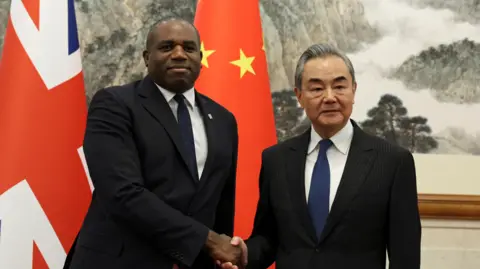 Reuters
ReutersLabour declared after the election that “Britain is back” on the world stage after years of Conservative retreat.
But when it comes to China, the government is tiptoeing nervously in the wings.
David Lammy’s trip to China is rare – he is only the second foreign secretary to visit in six years.
He held talks in Beijing with his powerful counterpart, Wang Yi, and Vice Premier Ding Xuexiang, before heading to Shanghai to meet British business leaders on Saturday.
You might think the Foreign Office would want to make a big thing of it, to emphasise the importance of the diplomatic repair job the foreign secretary is bent on.
But instead, the trip is taking place sotto voce.
There is little media access to Mr Lammy. There are no announcements about a new trade agreement, or cooperation on policy.
Whitehall sources tell me this in part the fault of Downing Street which, they say, is increasingly gripped by caution after a febrile few weeks.
No10 officials want to avoid political rows ahead of the Budget later this month. They do not want Labour and Conservative MPs to unite in accusing the government of putting economic gain ahead of human rights and international law.
There is a strong cross-party caucus in Westminster that is China-sceptic; seven MPs and peers remain officially sanctioned by Beijing as a result.
They are already accusing Mr Lammy of backtracking on pre-election promises to push the international courts to declare China’s treatment of the Uighur minority as genocide.
China audit looms
Perhaps the chief reason for the low-key nature of Mr Lammy’s visit is that Labour is still working out its policy towards China.
It is conducting what it calls a cross-Whitehall “audit” of Britain’s relationship with the country, which is not due to complete until next year. It is then that Chancellor Rachel Reeves, and perhaps even Prime Minister Sir Keir Starmer, may visit China.
For now, the government has a holding position which it sums up in three words: “challenge, compete, cooperate”.
It says it will challenge China on human rights abuses and its support for Russia in Ukraine. It will compete with China over trade. And it will cooperate with China over shared interests, such as global health and climate change.
If this sounds familiar, that is because other western powers use similar language. And the previous Conservative government’s policy was to “protect, align and engage”.
However, both parties have found it difficult to work out where precisely to draw the line.
Does “compete” involve banning Chinese electric vehicles from the UK’s automotive market?
Does “challenge” mean restricting lucrative Chinese students from attending cash-strapped UK universities?
Does “cooperate” involve sharing private medical research to help prevent a future pandemic?
‘New starting point’
The head of MI5, Ken McCallum, spoke only last week of “a threat that manifests at scale” from China, targeting Britain’s information and democracy.
Mr Lammy’s more prosaic aim on this visit is simply to re-establish some kind of working relationship with Beijing.
Under the Conservatives, UK-China relations blew hot and cold, between the diplomatic warmth of the so-called “golden era” to the hawkish aggression of more recent Conservative leaders.
Last year, then-Prime Minister Rishi Sunak called China the “greatest threat” to Britain’s economy; then-Foreign Secretary James Cleverly visited Beijing calling for re-engagement; his successor Lord Cameron resolutely ignored the country.
Mr Lammy says he wants to re-establish what he calls a more consistent and pragmatic relationship.
During his talks with Mr Wang, he said he was “struck by the scope for mutually beneficial cooperation on the climate, on energy and nature, of the science and tech, on trade and investment, on health and development.”
He said Beijing and London should “find pragmatic solutions to complex challenges”.
China appears up for that. Mr Wang said China-UK relations were “standing at a new starting point” and spoke of “our boosted confidence in bilateral cooperation”.
He even referred by name to Mr Lammy’s foreign policy slogan – “progressive realism” – which Mr Wang said, “has positive significance”.
So far, so conciliatory.
Drawing the line
Of course, Mr Lammy said both countries had “different perspectives” on some issues.
In a statement after the talks, the Foreign Office said he raised concerns about China’s military support for Russia in Ukraine, and how that was damaging China’s relationships in Europe.
The department also said he raised China’s treatment of the Uighurs in the Xinjiang region, “serious concerns” over the implementation of new national security laws in Hong Kong, and called for the release of the British media tycoon Jimmy Lai, who has been arbitrarily detained there.
But it insisted the meeting was “constructive across the full breadth of the bilateral relationship” and both sides committed to “regular discussions” at ministerial level.
For that ultimately is what this trip is all about: re-establishing links with the Chinese government.
The government’s priority is economic growth, and that is hard without a working relationship with its fourth largest trading partner.
But when it comes to China, it still remains unclear where Labour will draw the line between challenging, competing and cooperating.
Politics
No UK apology over slavery at Commonwealth
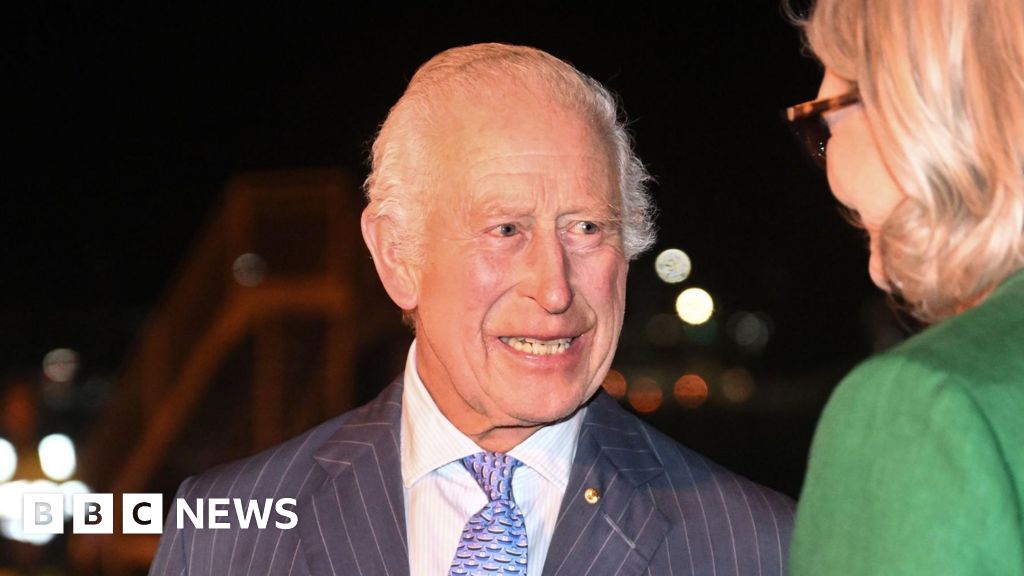
The government has said there will not be an apology over Britain’s role in the transatlantic slave trade when King Charles and Sir Keir Starmer visit the Commonwealth summit in Samoa next week.
A Downing Street spokesperson had already ruled out financial reparations.
Last year, the King spoke of his “greatest sorrow and regret” at the “wrongdoings” of the colonial era on a visit to Kenya, but stopped short of an apology, which would have depended on the agreement of ministers.
The Commonwealth Heads of Government Meeting, to be held in Samoa on 25 and 26 October, will bring together the leaders of 56 countries.
But even if the issue of historic links to slavery is raised at the summit, the UK government has told the BBC there are no plans for a symbolic apology.
Instead the focus will be on current issues, a government spokesperson said, such as “shared challenges and opportunities faced by the Commonwealth, including driving growth across our economies”.
Speeches from monarchs are made on the advice of ministers. This means the King would be unable to make an apology over the UK’s links to slavery unless he had the approval of the government.
Labour MPs including Bell Ribeiro-Addy had called for the UK government to officially apologise for its participation in the slave trade.
David Lammy, as an MP on the opposition benches in 2018, had said: “As Caribbean people we are not going to forget our history. We don’t just want to hear an apology, we want reparations.”
But with Labour now in power, Downing Street has ruled out an apology over slavery and ended speculation of any statement at the Commonwealth meeting in Samoa, which would have been the first international platform for such an apology to take place.
It means that the policy of not apologising continues from the previous government, when prime minister Rishi Sunak last year rejected the idea and said “trying to unpick our history is not the right way forward”.
Opponents of an apology have pointed to Britain’s prominent role in ending slavery, including legislation in 1807 to abolish the slave trade.
Discussions of formal apologies or reparations could still be raised by other countries, with Caribbean leaders having argued for some financial recognition of the legacy of slavery, with figures of £200bn being quoted.
The Commonwealth summit will also vote on a new secretary-general and all three of the candidates are supporters of reparations for transatlantic slavery.
It is an issue which strongly divides the public, including readers of the BBC’s Royal Watch newsletter, who got in touch by email.
“Those of us living now should not be made to feel guilty or apologise for something that had absolutely nothing to do with us,” Ruth, from the UK, said.
“We don’t like what happened, but we weren’t around then, so why should we say sorry?”
Ronald, from Bristol in the UK, took the opposite view.
“A sincere apology would acknowledge that grievance and, in my view, would go some way to assuaging the sense of injustice,” he said.
Sarah, in Ghana, said it would be “humane” of the King to deliver an apology.
“I believe it will go a long way to healing wounds caused by the slave trade,” she said.
The King and Queen Camilla arrived in Australia on Friday to begin their six-day tour of the country, which will be followed next week by the Commonwealth summit in Samoa.
Politics
Labour says it will cut benefits bill in its own way
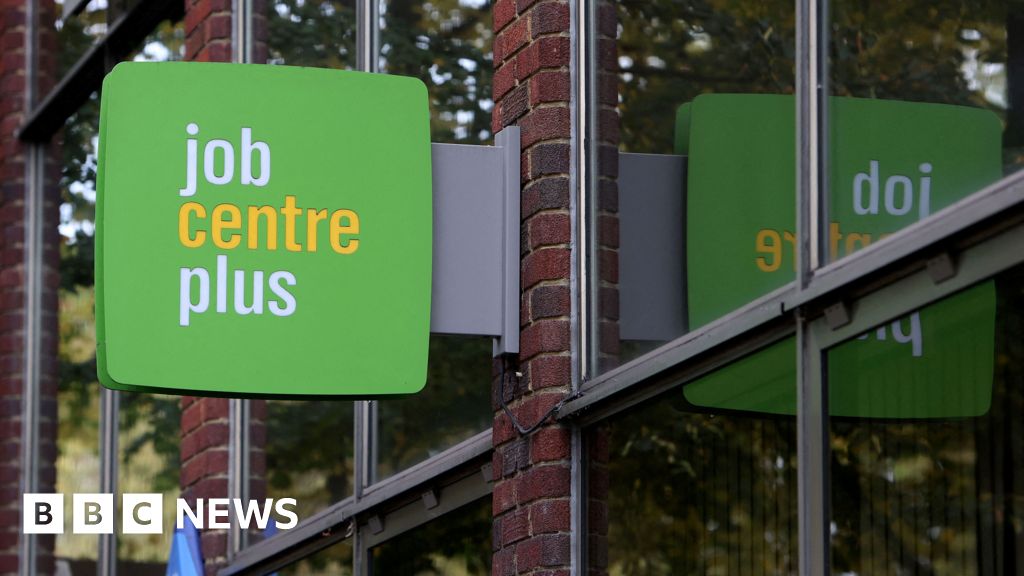
The government says “radical” reform of the system for getting people off sick back into work will help it slash the welfare bill.
Government sources have confirmed Labour is looking to “deliver savings” on the amount is spends on welfare in 30 October’s Budget.
But it says the savings will be delivered through “our own reforms” – rather than Conservative plans.
It comes after reports Chancellor Rachel Reeves is considering sticking with Conservative plans to restrict access to benefits on the grounds of ill-health.
The government has not ruled this out, but is emphasising its own plans to “radically” shake up benefits for people whose health limits their ability to work.
Planned changes – in a draft blueprint entitled Get Britain Working – are expected to be published later this autumn.
Labour wants to make changes to the Work Capability Assessment, which is used to determine if people can receive additional income-related benefits because of a health condition or disability.
It is promising a “proper plan to support disabled people to work”, as well as an as-yet unspecified plan to ensure every young person aged 18 to 21 is either “earning or learning”.
The changes will come alongside Health Secretary Wes Streeting’s plan to send “crack teams” of doctors to hospitals in areas with highest number of people off sick.
It has named Newcastle, Bolton and Blackpool as three cities where doctors will be sent to help people get back into the workforce.
Economic inactivity has spiralled post-pandemic, now affecting 9.3 million people who are neither in work nor looking for a job – a rise of 713,000 since Covid.
One in eight young people are now neither in education nor work.
New statistics show that 1.8 million inactive people – including 600,000 who are long-term sick – want to get back to work.
Kendall called the new figures “a shocking indictment of the inheritance left by the Conservatives and a stain on our nation”.
“The UK continues to be the only major economy whose employment rate hasn’t recovered from the pandemic,” she said.
“We will harness all the skills of the British people to get our country working again and our economy growing again.”
The reforms promise a major overhaul, combining Job Centres with the National Careers Service to offer better support and empowering local leaders to come up with solutions for boosting employment.
In the run up to the Budget, there has been speculation Chancellor Rachel Reeves is considering welfare cuts to help fill a reported £40bn spending gap.
The Work Capability Assessment decides what work-related conditions claimants must meet in order to keep getting benefits in full, and whether they are eligible for top-up payments.
Reeves is reportedly planning to stick with plans announced by her Conservative predecessor Jeremy Hunt to make changes to the test, which the Tories claimed would save an estimated £1.3bn a year by 2028-29.
The government also inherited a public consultation on changing Personal Independence Payments (PIP), a separate payment paid to working-aged people, including those in work, to cover additional health-related costs.
Changes considered by the Tories included replacing monthly cash payments with a vouchers system or one-off grants towards particular costs.
To date, Liz Kendall has not said whether she supports or opposes the thrust of her Tory predecessor’s proposals.
Employment Minister Alison McGovern told Radio 4’s Today programme: “If we do the same as the Tories have done for 14 years, we’ll have the same failure.”
Politics
Faster grid hook-ups planned for some green energy projects

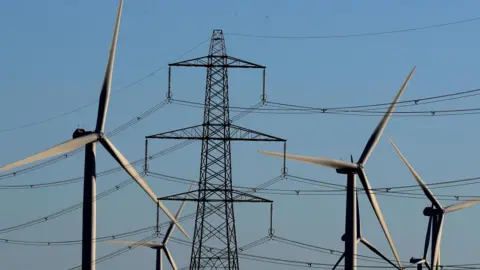 PA
PAWind and solar farms that are ready to be built would be allowed to jump the queue for a connection to the UK’s electricity system under government plans.
All energy schemes which need a connection to the National Grid are currently in a single queue which operates on a “first-come-first-served” basis.
Some projects face waiting times stretching long into the next decade to get connected.
The government wants to speed up projects that will help it meet its goal of decarbonising power generation in the UK by 2030.
Some industry sources say it would be a welcome move but others warn that there is a “real risk” of legal challenges from projects which lose out.
The previous government brought in powers to weed out projects from the queue which were not ready to start, under a “first ready, first connected” system.
It followed complaints that so-called “zombie projects,” which have little or no chance of being built, are blocking the way of those which are ready to go.
Now plans are under way for the creation of what is essentially a new grouping of energy projects, which will run on a “first ready and needed, first connected” system, leapfrogging over other projects in the queue.
The “needed” element refers to projects which are needed for clean power by 2030.
The plans are being developed by the National Energy System Operator (NESO), a new publicly-owned body tasked with connecting generation projects to the grid.
They would need to be approved by the energy regulator Ofgem, with connections intended to start by the end of 2025.
NESO said: “This is a complex challenge, and it’s important we get it right.”
But the industry is calling for more clarity, amid concerns about legal challenges from companies waiting to get connected in the current queue who may find their dates are being pushed back.
Charles Wood, deputy director of Energy UK, said it was “positive” that the government appeared to have acknowledged the threat of legal challenges.
But he said he would like to see more engagement from senior ministers to “address uncertainty” about the plans for network upgrades.
Merlin Hyman, chief executive of energy think tank Regen, said the plans to allow some projects to jump the queue made “a lot of sense” as the current system was “not fit for purpose”.
But he added: “Such a fundamental change is inevitably causing uncertainty for project developers and we need urgently to provide the clarity and certainty needed to unlock investment at the speed and scale required”.
It comes after initial attempts to purge the existing queue for connection of so-called “zombie projects” resulted in only 10 GW of connection being struck off, according to the Energy Networks Association.
This year, Ofgem put the size of the existing queue at 701 GW, and it’s expected to reach 800 GW by the end of 2024, which is far more than the UK would need by 2050.
A Department for Energy Security and Net Zero spokesperson said it planned to submit proposals for reform to Ofgem by the end of the year.
“This includes speeding up the process and reforming the system to remove stalled projects from the queue, so projects which support our 2030 clean power goal can be connected fast,” the spokesperson added.
-

 Science & Environment4 weeks ago
Science & Environment4 weeks agoHyperelastic gel is one of the stretchiest materials known to science
-

 Technology3 weeks ago
Technology3 weeks agoIs sharing your smartphone PIN part of a healthy relationship?
-

 Science & Environment4 weeks ago
Science & Environment4 weeks ago‘Running of the bulls’ festival crowds move like charged particles
-

 Science & Environment1 month ago
Science & Environment1 month agoHow to unsnarl a tangle of threads, according to physics
-

 Science & Environment1 month ago
Science & Environment1 month agoMaxwell’s demon charges quantum batteries inside of a quantum computer
-

 Technology1 month ago
Technology1 month agoWould-be reality TV contestants ‘not looking real’
-

 Science & Environment1 month ago
Science & Environment1 month agoLiquid crystals could improve quantum communication devices
-

 Science & Environment3 weeks ago
Science & Environment3 weeks agoX-rays reveal half-billion-year-old insect ancestor
-

 Womens Workouts4 weeks ago
Womens Workouts4 weeks ago3 Day Full Body Women’s Dumbbell Only Workout
-

 Science & Environment1 month ago
Science & Environment1 month agoQuantum ‘supersolid’ matter stirred using magnets
-

 Science & Environment1 month ago
Science & Environment1 month agoSunlight-trapping device can generate temperatures over 1000°C
-

 Science & Environment1 month ago
Science & Environment1 month agoWhy this is a golden age for life to thrive across the universe
-

 Science & Environment1 month ago
Science & Environment1 month agoQuantum forces used to automatically assemble tiny device
-

 Science & Environment1 month ago
Science & Environment1 month agoLaser helps turn an electron into a coil of mass and charge
-

 Science & Environment1 month ago
Science & Environment1 month agoA slight curve helps rocks make the biggest splash
-

 Science & Environment1 month ago
Science & Environment1 month agoNerve fibres in the brain could generate quantum entanglement
-

 Science & Environment1 month ago
Science & Environment1 month agoHow to wrap your mind around the real multiverse
-

 Science & Environment1 month ago
Science & Environment1 month agoITER: Is the world’s biggest fusion experiment dead after new delay to 2035?
-
News1 month ago
the pick of new debut fiction
-

 Science & Environment1 month ago
Science & Environment1 month agoA new kind of experiment at the Large Hadron Collider could unravel quantum reality
-

 News4 weeks ago
News4 weeks agoOur millionaire neighbour blocks us from using public footpath & screams at us in street.. it’s like living in a WARZONE – WordupNews
-

 Science & Environment1 month ago
Science & Environment1 month agoTime travel sci-fi novel is a rip-roaringly good thought experiment
-

 News1 month ago
News1 month ago▶️ Hamas in the West Bank: Rising Support and Deadly Attacks You Might Not Know About
-

 News1 month ago
News1 month ago▶️ Media Bias: How They Spin Attack on Hezbollah and Ignore the Reality
-

 Technology3 weeks ago
Technology3 weeks agoWhy Machines Learn: A clever primer makes sense of what makes AI possible
-

 Science & Environment1 month ago
Science & Environment1 month agoNuclear fusion experiment overcomes two key operating hurdles
-

 Science & Environment1 month ago
Science & Environment1 month agoPhysicists are grappling with their own reproducibility crisis
-

 Technology3 weeks ago
Technology3 weeks agoUkraine is using AI to manage the removal of Russian landmines
-

 Technology2 weeks ago
Technology2 weeks agoThis AI video generator can melt, crush, blow up, or turn anything into cake
-

 Technology3 weeks ago
Technology3 weeks agoMicrophone made of atom-thick graphene could be used in smartphones
-

 Sport2 weeks ago
Sport2 weeks agoWales fall to second loss of WXV against Italy
-

 MMA2 weeks ago
MMA2 weeks agoJulianna Peña trashes Raquel Pennington’s behavior as champ
-

 Business2 weeks ago
Business2 weeks agoWhen to tip and when not to tip
-

 Sport2 weeks ago
Sport2 weeks agoCoco Gauff stages superb comeback to reach China Open final
-

 Science & Environment4 weeks ago
Science & Environment4 weeks agoPhysicists have worked out how to melt any material
-
Business3 weeks ago
Eurosceptic Andrej Babiš eyes return to power in Czech Republic
-

 News1 month ago
News1 month agoYou’re a Hypocrite, And So Am I
-

 TV2 weeks ago
TV2 weeks agoসারাদেশে দিনব্যাপী বৃষ্টির পূর্বাভাস; সমুদ্রবন্দরে ৩ নম্বর সংকেত | Weather Today | Jamuna TV
-

 Sport3 weeks ago
Sport3 weeks agoWorld’s sexiest referee Claudia Romani shows off incredible figure in animal print bikini on South Beach
-
Business2 weeks ago
DoJ accuses Donald Trump of ‘private criminal effort’ to overturn 2020 election
-

 News2 weeks ago
News2 weeks agoMassive blasts in Beirut after renewed Israeli air strikes
-

 Sport4 weeks ago
Sport4 weeks agoJoshua vs Dubois: Chris Eubank Jr says ‘AJ’ could beat Tyson Fury and any other heavyweight in the world
-

 Science & Environment4 weeks ago
Science & Environment4 weeks agoRethinking space and time could let us do away with dark matter
-

 Science & Environment1 month ago
Science & Environment1 month agoCaroline Ellison aims to duck prison sentence for role in FTX collapse
-

 Health & fitness1 month ago
Health & fitness1 month agoThe secret to a six pack – and how to keep your washboard abs in 2022
-

 News1 month ago
News1 month agoNew investigation ordered into ‘doorstep murder’ of Alistair Wilson
-
News4 weeks ago
The Project Censored Newsletter – May 2024
-

 Technology3 weeks ago
Technology3 weeks agoQuantum computers may work better when they ignore causality
-

 Sport3 weeks ago
Sport3 weeks agoWatch UFC star deliver ‘one of the most brutal knockouts ever’ that left opponent laid spark out on the canvas
-

 Technology3 weeks ago
Technology3 weeks agoUniversity examiners fail to spot ChatGPT answers in real-world test
-

 News2 weeks ago
News2 weeks agoHeartbreaking end to search as body of influencer, 27, found after yacht party shipwreck on ‘Devil’s Throat’ coastline
-

 News2 weeks ago
News2 weeks agoHull KR 10-8 Warrington Wolves – Robins reach first Super League Grand Final
-

 TV2 weeks ago
TV2 weeks agoLove Island star sparks feud rumours as one Islander is missing from glam girls’ night
-

 MMA2 weeks ago
MMA2 weeks agoDana White’s Contender Series 74 recap, analysis, winner grades
-

 Technology2 weeks ago
Technology2 weeks agoTexas is suing TikTok for allegedly violating its new child privacy law
-

 Technology2 weeks ago
Technology2 weeks agoSamsung Passkeys will work with Samsung’s smart home devices
-

 News2 weeks ago
News2 weeks ago▶ Hamas Spent $1B on Tunnels Instead of Investing in a Future for Gaza’s People
-

 News2 weeks ago
News2 weeks agoNavigating the News Void: Opportunities for Revitalization
-

 News2 weeks ago
News2 weeks agoHeavy strikes shake Beirut as Israel expands Lebanon campaign
-

 Science & Environment4 weeks ago
Science & Environment4 weeks agoA tale of two mysteries: ghostly neutrinos and the proton decay puzzle
-

 MMA3 weeks ago
MMA3 weeks agoConor McGregor challenges ‘woeful’ Belal Muhammad, tells Ilia Topuria it’s ‘on sight’
-

 Technology4 weeks ago
Technology4 weeks agoRobo-tuna reveals how foldable fins help the speedy fish manoeuvre
-
Business3 weeks ago
Should London’s tax exiles head for Spain, Italy . . . or Wales?
-

 Technology3 weeks ago
Technology3 weeks ago‘From a toaster to a server’: UK startup promises 5x ‘speed up without changing a line of code’ as it plans to take on Nvidia, AMD in the generative AI battlefield
-

 Football3 weeks ago
Football3 weeks agoFootball Focus: Martin Keown on Liverpool’s Alisson Becker
-

 Technology3 weeks ago
Technology3 weeks agoEpic Games CEO Tim Sweeney renews blast at ‘gatekeeper’ platform owners
-
Business2 weeks ago
LVMH strikes sponsorship deal with Formula 1
-

 TV2 weeks ago
TV2 weeks agoPhillip Schofield accidentally sets his camp on FIRE after using emergency radio to Channel 5 crew
-

 Technology2 weeks ago
Technology2 weeks agoAmazon’s Ring just doubled the price of its alarm monitoring service for grandfathered customers
-

 Football2 weeks ago
Football2 weeks agoRangers & Celtic ready for first SWPL derby showdown
-

 Technology2 weeks ago
Technology2 weeks agoA very underrated horror movie sequel is streaming on Max
-

 News2 weeks ago
News2 weeks agoBalancing India and China Is the Challenge for Sri Lanka’s Dissanayake
-
Politics3 weeks ago
Robert Jenrick vows to cut aid to countries that do not take back refused asylum seekers | Robert Jenrick
-
Business2 weeks ago
Bank of England warns of ‘future stress’ from hedge fund bets against US Treasuries
-

 Business2 weeks ago
Business2 weeks agoChancellor Rachel Reeves says she needs to raise £20bn. How might she do it?
-

 MMA2 weeks ago
MMA2 weeks agoPereira vs. Rountree prediction: Champ chases legend status
-

 Technology2 weeks ago
Technology2 weeks agoApple iPhone 16 Plus vs Samsung Galaxy S24+
-
Politics2 weeks ago
Rosie Duffield’s savage departure raises difficult questions for Keir Starmer. He’d be foolish to ignore them | Gaby Hinsliff
-

 Politics2 weeks ago
Politics2 weeks agoHochul’s careful conversations
-

 Technology2 weeks ago
Technology2 weeks agoThe best shows on Max (formerly HBO Max) right now
-

 News4 weeks ago
News4 weeks agoIsrael strikes Lebanese targets as Hizbollah chief warns of ‘red lines’ crossed
-

 Technology1 month ago
Technology1 month agoThe ‘superfood’ taking over fields in northern India
-

 Science & Environment4 weeks ago
Science & Environment4 weeks agoFuture of fusion: How the UK’s JET reactor paved the way for ITER
-
Politics4 weeks ago
UK consumer confidence falls sharply amid fears of ‘painful’ budget | Economics
-

 Sport4 weeks ago
Sport4 weeks agoUFC Edmonton fight card revealed, including Brandon Moreno vs. Amir Albazi headliner
-

 News1 month ago
News1 month agoHow FedEx CEO Raj Subramaniam Is Adapting to a Post-Pandemic Economy
-

 Science & Environment4 weeks ago
Science & Environment4 weeks agoUK spurns European invitation to join ITER nuclear fusion project
-

 CryptoCurrency4 weeks ago
CryptoCurrency4 weeks agoCardano founder to meet Argentina president Javier Milei
-

 News4 weeks ago
News4 weeks agoWhy Is Everyone Excited About These Smart Insoles?
-

 Science & Environment4 weeks ago
Science & Environment4 weeks agoMeet the world's first female male model | 7.30
-

 News4 weeks ago
News4 weeks agoFour dead & 18 injured in horror mass shooting with victims ‘caught in crossfire’ as cops hunt multiple gunmen
-

 Technology3 weeks ago
Technology3 weeks agoGet ready for Meta Connect
-

 Technology3 weeks ago
Technology3 weeks agoArtificial flavours released by cooking aim to improve lab-grown meat
-

 Health & fitness3 weeks ago
Health & fitness3 weeks agoThe 7 lifestyle habits you can stop now for a slimmer face by next week
-
Business3 weeks ago
Ukraine faces its darkest hour
-

 Sport2 weeks ago
Sport2 weeks agoLauren Keen-Hawkins: Injured amateur jockey continues progress from serious head injury
-
Business2 weeks ago
Top shale boss says US ‘unusually vulnerable’ to Middle East oil shock
-

 Technology2 weeks ago
Technology2 weeks agoMusk faces SEC questions over X takeover
-
Business2 weeks ago
CEOs turn to podcasts to control their message
-
Business2 weeks ago
Sterling slides after Bailey says BoE could be ‘a bit more aggressive’ on rates


You must be logged in to post a comment Login